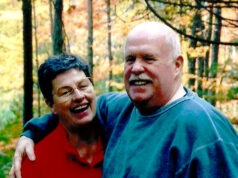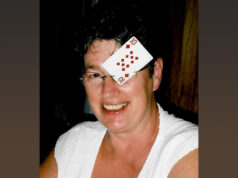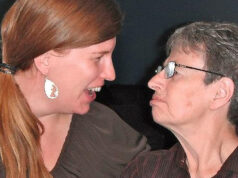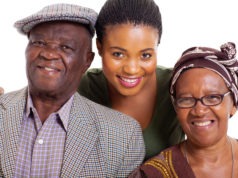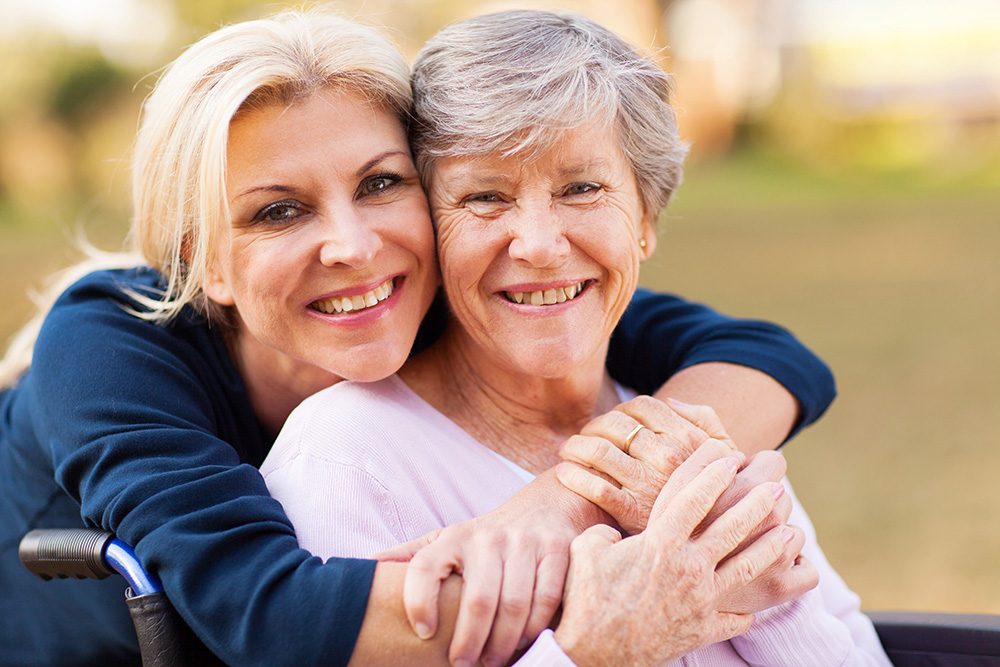Suzanne: And welcome back to segment number two in this series with Lianna Marie from AllAboutParkinson’s.com. And Lianna and I are talking about just how you deal with the disease of Parkinson’s. And number one, we talked about coping. This one is kind of a unique one, and I’m just gonna throw out, you have the power of focus, Lianna, what does that mean?
Lianna Marie: Thank you for having me again. And yes, so, focus is an interesting topic I decided to dive into in my current book that I’m writing, The Parkinson’s Path, because it was something that I think as people with Parkinson’s definitely understand this if they’ve lived with it for any length of time, but your life can become… it’s a very complex disease, for starters. So it affects both you, both your physical and your emotional side. Both things happening simultaneously. A lot of non-motor symptoms that we aren’t aware of, that we’re becoming more aware of that folks know, but it’s also because of all that going on, there’s lots of things going on. There’s also something, so we’re losing our focus because we’ve just got so much going on. And then there’s also the actual change that’s happening in people with Parkinson’s brains, and that’s creating this thing. And I think for a while we didn’t really know. Is this an actual thing, or what? And my mom used to say, I just have a foggy brain, I can’t multitask anymore. And I’d be like, oh, ok, all of us have times where we maybe get a little older and we find it a little hard to balance things. But the truth is that for people with Parkinson’s, there’s an actual change that’s happening in their brain that does make it, in fact, they call it dual tasking, makes it well, just, just doing two things, walking, combining with another task. Whether it’s walking and talking, no joke, is a thing that is hard for people with Parkinson’s to do. Hence the ability to focus on one thing, one thing only at a time. And if you’re a care partner, this is especially important to understand for your partner or whoever, your mom, your dad, who has Parkinson’s is, it’s really important that you understand that they just can’t do these two things at one time. So when you’re asking them, mom, just just walk through that doorway, and she’s like, ok, just give me a second, and she’s got a laser focus on that one thing. And that’s not her fault, it’s just the way that what’s happening in their brain in terms of the chemicals changing. And it can be a really bad thing if you aren’t paying attention to that, because that can lead to loss of balance, and then falling. If they aren’t aware, if the care partner isn’t aware, that focus is really important. So I just want to mention that as a general part of people with Parkinson’s, that loss of being able to multitask, it’s important that you understand that that’s a thing.
And then I want to talk about just how my mom learned how to focus over time, not just on tasks but on like the overall living with Parkinson’s, and how that helped her. Being, I guess, like all of us, I don’t mean all of us as in me, but people who are diagnosed with something, I think it just forces you to focus on what’s important. I mean, all of us know that in an instant your life changes, and you have to decide, OK, what’s most important? And so focusing was a big deal for us as a family, and going, OK, so what does this mean? Parkinson’s, what is it, what is it gonna mean down the road? And focusing, and going, OK, let’s try not to get overwhelmed, because we all can get easily overwhelmed. I know that my doctor friends say, when a patient’s in their office and they’ve just told them they have Parkinson’s, they’re just going all over the place. But what about this? What about this? Like, my life is over, and it’s not, it’s not, but it can seem like it is and it can be extremely….
Suzanne: Change is hard for anybody, but every day, if you have a chronic illness, you’re gonna have changes every day and that you’re gonna have to face and for many people, the adjustment to, well, I used to do this. I think, Lianna, not only with illness, but with aging in general, when we look at our lives, I’m a lot older than you, and the fact that I’m gonna be 67 in a couple weeks and I sit back and I think to myself, you know, I can’t do the things I used to do, and it’s frustrating to me but, but it’s changed. It’s being willing to ask for help, is being willing to be vulnerable and say, you know what, I can’t do this anymore, or I, you know, I surrender. I think that’s it. And I think what you just said there, that focusing, and this is one of the biggest helps I think for me, for my mom was, and it’s so easy to say, but maybe not easy to implement, is focus on the things you can do instead of the things you can’t.
Lianna Marie: And I think that’s so easy when things are being taken away from you. When your independence is being taken away from you, when your mobility is being taken away from you, from these things that were so easy to do before just like brushing your teeth, which we may take for granted. But now somebody with Parkinson’s, they’re trying to brush their teeth and it’s all over their toothpaste is all over their face. That’s why you get the electric toothbrush. But anyway, but like those kind of things, and for my mom over time, I’m not saying this happened immediately by any means, nor did it happen with myself. Was that over time going? Like you said, so accepting a little bit, being vulnerable, saying, OK, fine, I accept that this is happening, but I’m not, I’m not giving into it. I like Michael J Fox’s quote, I wrote it down: “Acceptance doesn’t mean resignation, it means understanding that something is what it is, and that there’s gotta be a way through it.” So for him, he goes ok, I acknowledge it, and we all know Michael J Fox, we love him, but he’s not laying down and going, “Ok. It’s all game over, right?” Parkinson’s just roll over me.
So it’s acknowledging, and for my mom it’s, OK, asking for some help, being OK, being vulnerable, and honing in on those things that she could still control. So control the things that you can, try not to worry about the things that you can’t. I know it’s easier said than done, but we can all take that as good advice in our lives, right? The serenity prayer, you know, but I would say that that for us was a big thing and so she over time learned to focus on things like, I can control my diet, what goes into my mouth, to help with my Parkinson’s symptoms. I can control my exercise to an extent. Even when she was losing her mobility, she could control whom she allowed in her circle. So if somebody was being very negative, or putting her down about her Parkinson’s, which unfortunately did happen, she would say, you know what? I don’t have room for that in my life anymore, I’m going to control that piece of my life. and I’m gonna have people that I’m going to surround myself with people that are gonna build me up. instead of look at me like I’m weaker because I have Parkinson’,s or might ridicule me because I have Parkinson’s. So those are the things she focused on, and I believ eally did make a difference over time.
I always think of things in athletic terms, but because I’m an athlete, when you’re learning mental training for something like shooting a target or something, right? Or golf, as my husband plays, it’s easy to go. Let’s say I’m looking at a target, and I’m trying to hit a 10, right bulls eye down the middle, I wanna say hit a 10, I don’t want to say in my head don’t hit a five, because as soon as you have that in your head, don’t do that one, that’s where your mind goes, right? So it’s a subtle, but very effective thing to change. So when someone with Parkinson’s is going along on their day and darn it, the wheels shut down, your legs stop moving, whatever it is that’s going on, you want to focus on the thing that you want to happen, as opposed to the thing that you don’t. I’m not suggesting that you can just mentally train yourself out of a symptom. However, I will say that it certainly doesn’t hurt to be focusing on the things that you want, as opposed to the things that you don’t want. So that’s just something that we found over time really helped my mom, and it took a lot of inner strength to keep steering back to that. No, I’m not gonna think about 5,000 things that need to happen. I’m gonna focus on this one thing: I’m getting from here to here, and I’m not gonna allow all the distractions of things that aren’t going my way today.
Suzanne: I’m reminded to, a lot of us are faced with overwhelming circumstances at times, good and bad, and sometimes there’s a statement, the longest journey begins with a single step, only do what you can do in any minute, and you know what, it’s going to happen eventually. It’s like, how do you eat an elephant? One bite at a time. Nobody’s asking anybody with a chronic disease or extraordinary circumstances to do something or extraordinary, right? It’s a matter of accepting what you can do and focusing on the little things one step at a time, and eliminating the distractions, not listening to the noise from other people saying they think you should do this or should do that. Little things like that is I think really a part of self-care and making sure that you can move forward, wouldn’t you say that’s true?
Lianna Marie: Yeah. And I know people probably going, oh, yeah, sure, easier said than done. And it is sometimes, and I agree and for care partners in particular, too, it’s like we talk about that — we have full segments on that, in terms of self-care for the care partner. But it really is like, if you want to think of it as triage, think of it that way, what’s the most important thing? And we’re going to deal with that today at this moment, and nothing else really matters at this moment. Right? What is it, that thing? And if it’s like, well, mom, I need you, you know what is the most important thing? And she says to me, Lianna, all I need is a hug. Well, darn it, I’m gonna give you that hug, and then we’re gonna go on. All I need to do is get out of this chair, and get into that chair over there. I’m like, we can do that, mom, we can do that. All right, I’m here to help you, whatever it is, and the same thing for the care partner. What is the most important thing for me? Now, I need my 15 minutes of meditation or my 15 minutes for me, time, right? Whatever that is. Yeah.
Suzanne: Thank you so much for that piece of wisdom. And coming up next, we have — I love how you titled your segments — we’re gonna throw out: what does it mean to be empowered with Parkinson’s? Lianna and I are gonna talk about it in segment three.








